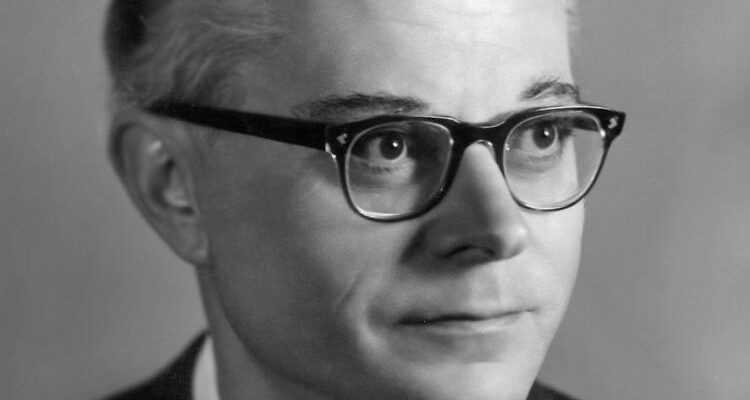Wednesday 17th November 2021
Study screened by authorities
Federal prosecutor’s office long shaped by Nazis
In the years 1950 to 1974, a number of former NSDAP members worked in the federal prosecutor’s office. The sometimes shocking cases are brought to light by a large work-up study. The last federal prosecutor charged did not leave the service until the 1990s.
Until the 1970s, the Federal Prosecutor’s Office was staffed by former NSDAP members and lawyers from the Nazi judicial system. The formal burden was “overwhelming”, write the authors of a large study on behalf of the Attorney General, which will appear as a non-fiction book during the day. In the founding years of the Karlsruhe authority, however, they also encountered very different individual fates.
For the investigation, which sheds light on the years 1950 to 1974, the Federal Prosecutor’s Office granted access to personnel, general and procedural files, some of which were classified as confidential or secret. Federal Prosecutor General Peter Frank wants to present the final report to the public on Thursday together with the Executive Minister of Justice Christine Lambrecht.
In the past few years, other security agencies and ministries had had their Nazi legacy examined scientifically in the post-war period. The Federal Prosecutor was a “special challenge”, write the two authors, the historian Friedrich Kießling and the criminal lawyer Christoph Safferling. In the rather small authority, individual persons would have had a much stronger influence on the institution. In 1951, only three federal prosecutors, four senior public prosecutors and three auxiliaries worked for the head of the authority, who was called the Federal Public Prosecutor until 1957. In 1974 there were 51 lawyers in the higher service. 16 of them were federal prosecutors, including the first woman.
No “conscious break” with the Nazi past
In the higher service, the Nazi exposure was the highest percentage between 1953 and 1959, when around 75 percent of the employees were former NSDAP members. In 1966, 10 out of 11 of the federal attorneys had previously been in the party, in 1974 the figure was 6 out of 15. The chief public prosecutors were at times – 1952 and 1953 – even consistently affected. According to the study, the last federal prosecutor charged with membership in the NSDAP left the service in 1992. There were a total of 23 officers in the SA. The authors did not come across former SS members, nor did they come across NSDAP members who had already joined the party before 1933.
At the same time, a large number of civil servants in the higher service had also served in the judiciary under National Socialism. In 1953 the rate was just under 83 percent. Ten years later, 74 percent of federal and senior public prosecutors had official experience from before 1945. It was not until 1972 that former Nazi lawyers were clearly in the minority. These figures say nothing about the actual behavior of individual people and their individual guilt, write Kießling and Safferling. “The large and long continuity of office as well as the high number of formally burdened civil servants certainly show one thing: There was no break, even a conscious break with the Nazi past, even in the case of the Federal Prosecutor’s Office.”
A targeted search for unencumbered candidates or even emigrated colleagues could not be determined. As with other federal and security authorities, professional suitability was the focus when selecting personnel, while questions of political stance were of secondary importance. The authors point out that the Federal Prosecutor’s Office in particular was dependent on employees with considerable professional experience. “The chance that there would also be incriminated officials was correspondingly high.” Previous legal experience from the period between 1933 and 1945 was treated as normally as if it had been made in the Weimar Republic or in the German Empire. “Before and after 1945, many did not want to admit the interweaving of the general judiciary with Nazi law in the ‘Third Reich’.”
Later Attorney General ordered dozens of death sentences
During the reign of the National Socialists, Wolfgang Fränkel had a chicken thief executed.
(Photo: dpa)
One person to whom the study is particularly dedicated is Wolfgang Fränkel, whose tenure as Federal Attorney General ended in 1962 after just a few months with “one of the biggest Nazi scandals in the old Federal Republic”. Information scattered from the GDR showed that during his years as a so-called unskilled worker for the Reich Prosecutor’s Office in Leipzig between 1936 and 1943, with complaints of nullity, he had worked towards dozens of death sentences. The Oberreichsanwalt was actually able to have legally binding criminal judgments tightened retrospectively using the instrument of the nullity complaint.
According to research by Kießling and Safferling, Fränkel was responsible for at least 30 death sentences in this way. Once a chicken thief was executed, whom Fränkel, who later worked for the federal prosecutor’s office from 1951, described as a “completely unworthy member of the national community”. “The matter had no criminal or even disciplinary consequences for him,” says the final report of the academic research project. “This also applied to all other lawyers at the Federal Prosecutor’s Office who had a material Nazi burden, be it that they had been involved in death sentences in special or military courts during the Nazi era or had otherwise contributed to Nazi injustice . “
